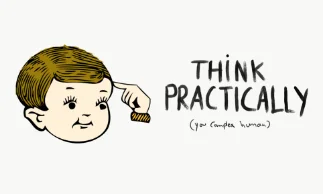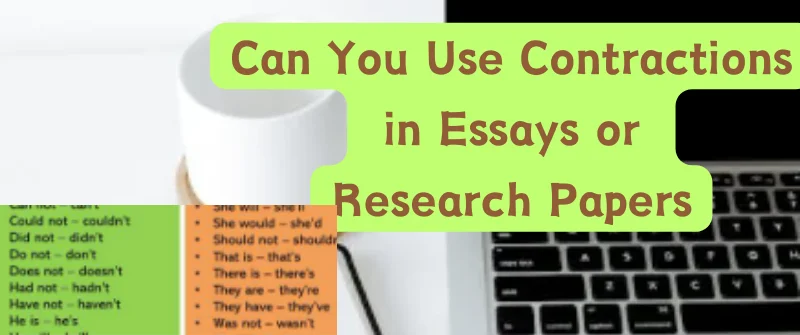Issues of AI in Education: Preventing students from Using AI

Artificial intelligence (AI) is becoming a transformative force in many industries, including education. There are worries about AI’s possible downsides, despite the fact that it has the ability to improve learning experiences. One of these concerns is keeping students from using artificial intelligence (AI) excessively.
In this conversation, we will look at the difficulties brought on by an overreliance on AI in the classroom and the significance of maintaining a balance so that kids may develop independent and critical thinking skills.
Ethical Issues with Rising AI in Education
1. Balancing Academic Integrity and AI Advancements
Academic integrity is a concern due to the growing use of AI in education. AI-powered tools can help students finish their homework and prepare for tests, but they also raise moral issues concerning plagiarism and cheating.

Implementing strong authentication mechanisms, educating students on ethical AI use, and establishing open policies that deter unethical behaviour are all necessary to balance embracing AI developments and maintaining academic integrity.
2. The Responsibility of AI Developers and Educators
Addressing the ethical implications of AI in education requires the collaboration of educators and AI developers. As top priorities, AI systems must operate with privacy, data security, and algorithmic transparency.
Teachers must advise students on using AI responsibly while educating them on the constraints and biases built into AI systems.
Collaboration between developers and educators is crucial to design ethical frameworks that match educational objectives with AI capabilities.
3. Ensuring Fair Evaluation and Assessment
AI-powered tools for review and assessment have enormous potential for offering effective and impartial feedback. However, it is crucial to guarantee fairness and prevent biases in these systems.
The possibility of prejudice in AI algorithms should be thoroughly explored, particularly concerning gender, ethnicity, and socioeconomic status
Regular audits and human monitoring are crucial to correct any algorithmic flaws. Additionally, instructors must take a comprehensive approach to assessment, considering both the qualitative components of student achievement and the limitations of AI.
People Also Read: Is using Course Hero Cheating? A guide on what really works
Implications for Education and Online Learning
Impact of ChatGPT on Student Learning Experience
ChatGPT can increase students’ engagement, promote discovery, and support independent learning by offering quick answers to questions, individualized support, and access to a plethora of knowledge. To maintain a healthy balance, it’s essential to ensure kids learn to think critically and not rely too heavily on AI in their academic endeavours.
Students understand the limitations of existing detection algorithms. Thus the need for continual research and development to respond to interactions utilizing Chat GPT.
Encouraging Critical Thinking and Originality
Promoting originality and critical thinking among students in the context of education and online learning is crucial.

While AI tools can speed up learning, it is still necessary to promote open-ended problem-solving, encourage a diversity of viewpoints, and encourage students to think for themselves to develop these skills.
In the digital learning environment, educators may foster creativity, innovation, and intellectual development.
Educating Students about AI and Plagiarism Detection
It is vital to teach students about AI and plagiarism detection as the use of AI in education and online learning increases.
Students can use AI tools wisely by being more informed about its potential, ethical ramifications, and limitations.
Additionally, teaching students how to use plagiarism detection software aids in their understanding of the value of originality and academic integrity.
Future Outlook
AI’s potential for plagiarism detection is very promising. AI systems are getting better at spotting and flagging copied content, even from sophisticated language models like ChatGPT. We may anticipate more advanced text comparison and analysis tools that use AI to assess and detect plagiarism as technology develops.
One such development can be observed in the SafeAssign plagiarism detection software, which is extensively used.
SafeAssign may include AI-driven methodologies as part of continuing research and development to improve its capacity to identify plagiarized content, including that produced by AI models.
Even so, this might entail teaching the system to recognize patterns and traits unique to the text produced by AI, allowing for more accurate identification.
Even though SafeAssign and comparable plagiarism detection technologies have been successful in locating instances of plagiarism, their success in detecting content produced by ChatGPT or similar models may change as AI technology progresses.
In an era where AI-powered content development is on the rise, ongoing research, innovation, and collaboration between AI developers and educators are crucial to maintaining the integrity of academic work.
People Also Read: Does Canvas Have AI Detection? For Papers and Discussion Posts
How to Prevent Students from Using AI for Assignments
1. Set Practical Tests
Problem-solving situations, computer simulations, or actual tasks that call for critical thinking may be included in practical exams.

Instead of just asking kids to repeat knowledge, these assessments should gauge how well they can apply concepts, analyse data, and draw conclusions.
Students get inspired to think critically and better comprehend the subject by emphasizing practical skills.
Time restrictions that are implemented during tests can also deter the adoption of AI. Setting realistic deadlines makes it hard for students to use AI tools to do homework within the allotted time. This fosters authentic learning and discourages shortcuts by encouraging them to rely on their knowledge and skills.
People Also Read: Does Brainly Notify Your School or Snitch on Students?
2. Punish when Caught
Apply harsh penalties to prevent repeat offenses when pupils are guilty of exploiting AI.
Depending on the seriousness of the offense, these sanctions could include academic consequences like failing the assignment, getting a lower grade, or being subjected to disciplinary action.
The policy’s consistent application conveys that academic integrity is essential and that employing artificial intelligence (AI) as a shortcut is unacceptable. This strategy encourages a culture of integrity and ensures students are aware of the serious repercussions of utilizing AI to try to cheat.
3. Publish AI Policies
Educational institutions must establish and publish clear AI regulations to prevent students from utilizing AI for assignments. These regulations should expressly specify that AI-generated work is not allowed for assignments and lay out the guidelines and expectations for using AI tools.
Students are made aware of the institution’s position on using AI and the repercussions of breaking the policy by making these policies readily available.
Students learn the value of real learning experiences and act as a deterrent when there is open communication and transparency about AI policy. These restrictions can effectively deter students from relying on AI for assignments by being updated and enforced on a regular basis.
4. Ban the Use of AI

A complete restriction on using AI technologies is one way to stop students from utilizing them for assignments. This requires explicitly declaring in the academic integrity policy that using any AI aid to complete homework is forbidden.
The imposition of this prohibition informs students that using AI for coursework is illegal and will result in disciplinary action.
Monitoring techniques like plagiarism detection software can also be used to find any instances of AI-generated content.
A restriction on AI use promotes a culture of academic integrity by sending a clear message about the value of independent thought, critical analysis, and ethical behaviour.
People Also Read: Can Turnitin Detect ChatGPT or AI like Bard: Tips to escape
5. Promote Academic Integrity
Prioritizing and promoting academic integrity is crucial if we want to stop students from utilizing AI for their tasks.
Various methods can work to accomplish this. First and foremost, it is essential to promote an environment of integrity and place a premium on innovative thought, creative output, and moral conduct.
Teachers should actively engage in discussions with students about academic integrity, the drawbacks of using artificial intelligence, and the value of fostering personal development through authentic learning opportunities.
Students can better appreciate the value of their work and be discouraged from looking to AI as a quick cut by fostering open debates, outlining clear objectives, and offering explicit standards.
Institutions can instil principles that discourage students from utilizing AI for assignments by strongly emphasizing academic integrity.

Josh Jasen or JJ as we fondly call him, is a senior academic editor at Grade Bees in charge of the writing department. When not managing complex essays and academic writing tasks, Josh is busy advising students on how to pass assignments. In his spare time, he loves playing football or walking with his dog around the park.




